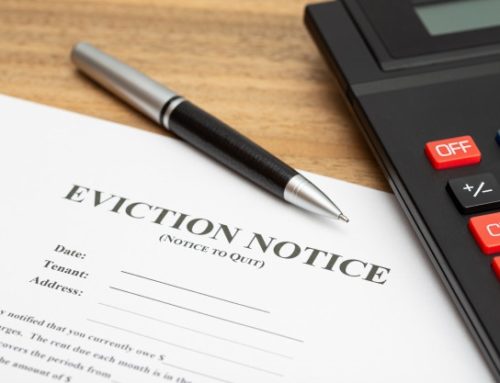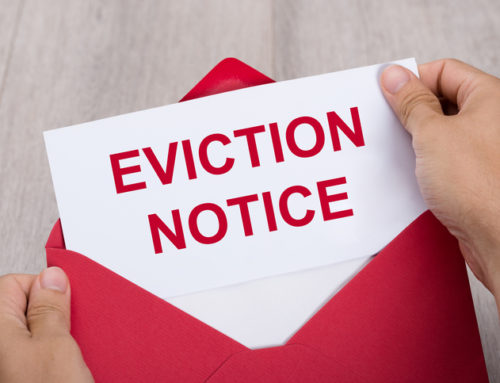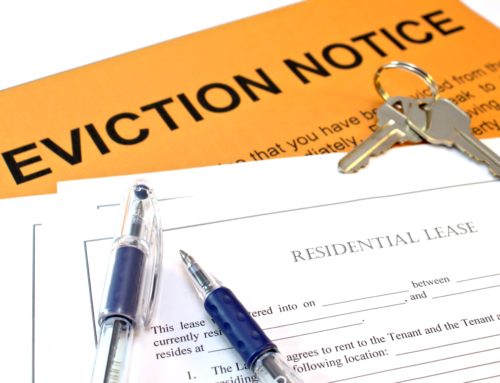There are many state laws and regulations in Texas about landlord-tenant laws. There are a variety of reasons why a landlord would want to evict a tenant, and the tenancy must first be legally terminated before you can evict an occupant or tenant. As required by state law, a written notice of eviction should first be given to the tenant before they can get evicted from the rental property.
There are rules set out by the Texas State Property Code that a landlord or property owner must follow when evicting a tenant who owes you rent, and you need to comply with these laws to evict tenants. Otherwise, your tenant will be saved from being evicted, and you will start over the legal process again. If you are a landlord planning to issue a notice of eviction, we have provided a few things you need to know.
If you also want to know more about the landlord-tenant law and how to evict tenants in Texas, you can contact a Frisco landlord attorney for a free legal consultation.
Rent Payments
 If the payment is on a month-to-month basis, the payment of rent in Texas is usually due on the first day of the month, regardless of whether there is a holiday or if it is a weekend; unless it is otherwise stated in the rental or lease agreement.
If the payment is on a month-to-month basis, the payment of rent in Texas is usually due on the first day of the month, regardless of whether there is a holiday or if it is a weekend; unless it is otherwise stated in the rental or lease agreement.
Depending on the lease or rental agreement between the tenant and landlord, the rent payment is already late the day after it is due. For example, if your rent is due on the first day of the month, then it is already considered late if you pay your rent the next day or the second day of the month.
While in most states the eviction process can’t begin before tenants are allowed to either make the late payment of rent or to vacate the property, tenant eviction in Texas can begin immediately. However, if it’s indicated in the agreement that the landlord must give the tenant ample time to pay the rent payment owed, then he must abide by it. He can remind the tenant of the unpaid rent in an eviction notice, and demand that the rent be paid on the date indicated in the notice to quit occupancy. Otherwise, they must move out and leave the property.
When to Issue a Notice of Eviction for Nonpayment of Rent in Texas
Under state law, landlords must give tenants at least two days to pay rent before charging late fees. However, a landlord can issue to tenants an eviction notice for failure to pay rent immediately after the rent is due.
Once an eviction notice is served, tenants are given three days either to pay the rent they owe or to vacate the property. The three-day notice begins the moment the notice of eviction is given to the tenant. Depending on the lease or rental agreement, the notice period may be shorter or longer than three days. (Tex. Prop. Code Ann. §§ 24.005(a) and (g).) once the three-day period is over, the landlord can legally evict tenants from the rental property.
What Information Must Be Included in the Notice of Eviction?
As a landlord, writing a proper notice of eviction is important if you want your eviction case to go smoothly. Eviction notices should include the following:
- The date the eviction noticed was delivered to the tenant
- The name and details of the rented property
- The reason for eviction (failure to pay rent)
- A statement indicating the three-day notice to vacate, including the date and time to move out (if the tenant has the option to pay rent, then it must also be indicated in the notice)
- A demand indicating that the landlord can pursue legal action and go to court to file an eviction lawsuit (also known as an unlawful detainer lawsuit) if the tenant refuses to vacate the premises
Properly issuing an eviction notice is important for the notice of eviction to be valid and for the three days’ notice to start. The notice in writing should include all the vital information such as the date and time of moving out. Otherwise, the tenant cannot be evicted for non-payment of rent and the landlord would have to start the process all over again and give the tenant a new notice.
Aside from making sure that the notice is written properly, landlords must also make sure that it is served to tenants the right way. Otherwise, the eviction action won’t be valid, ultimately derailing the eviction process.
To avoid getting your eviction notice from being dismissed, it is best to seek legal assistance from a Frisco landlord lawyer who has adequate knowledge of eviction laws and landlord and tenant laws.
Our landlord attorneys at Girling Law, PLLC can provide you with the legal help you need for your eviction process and paperwork. Call us today for a legal consultation.





